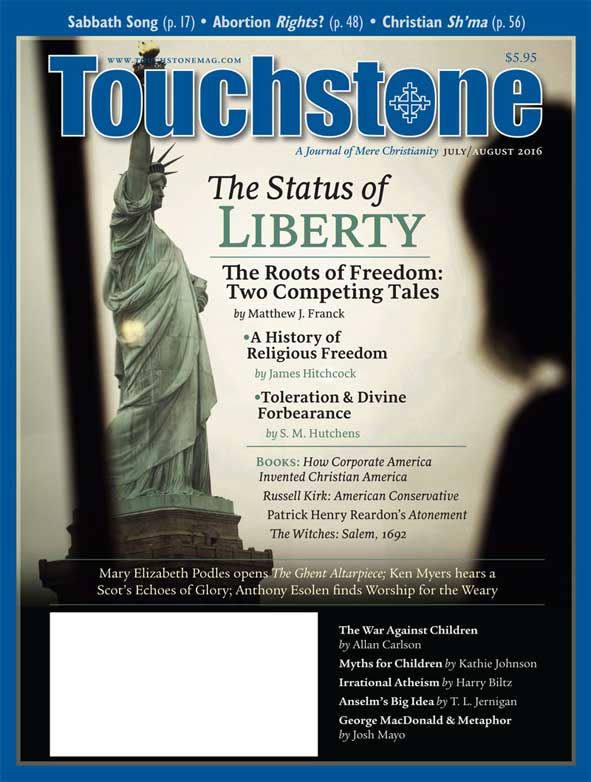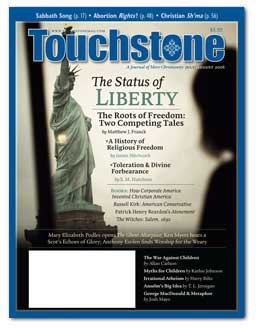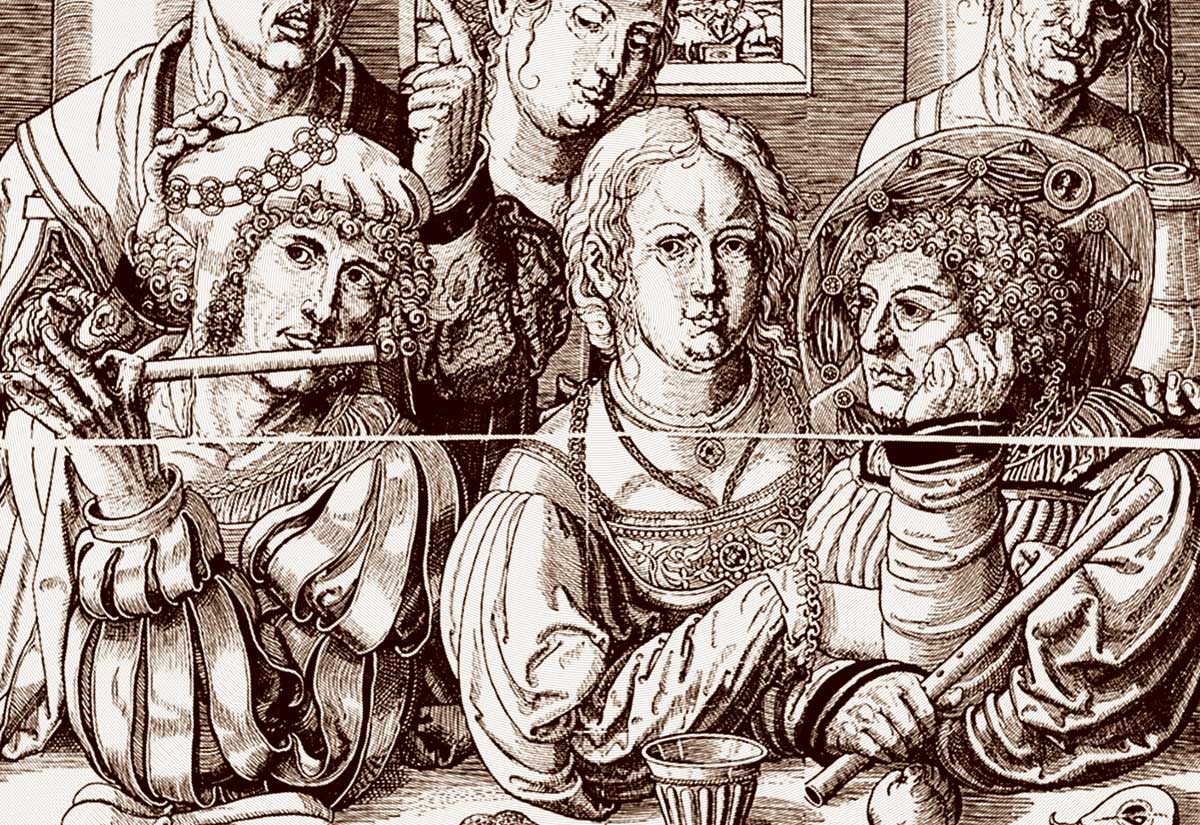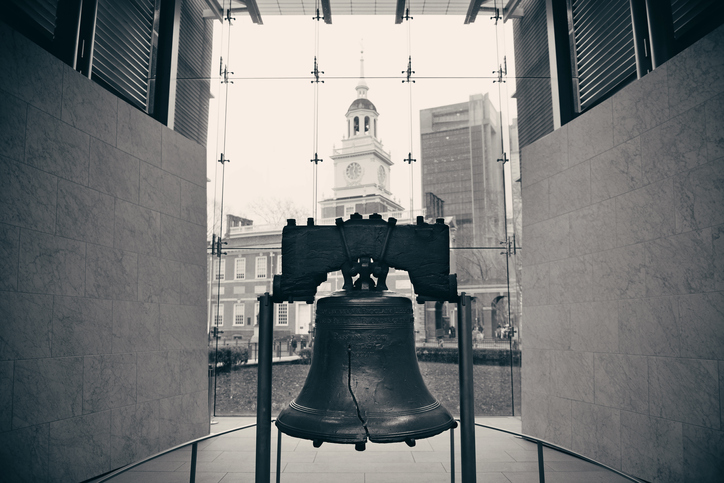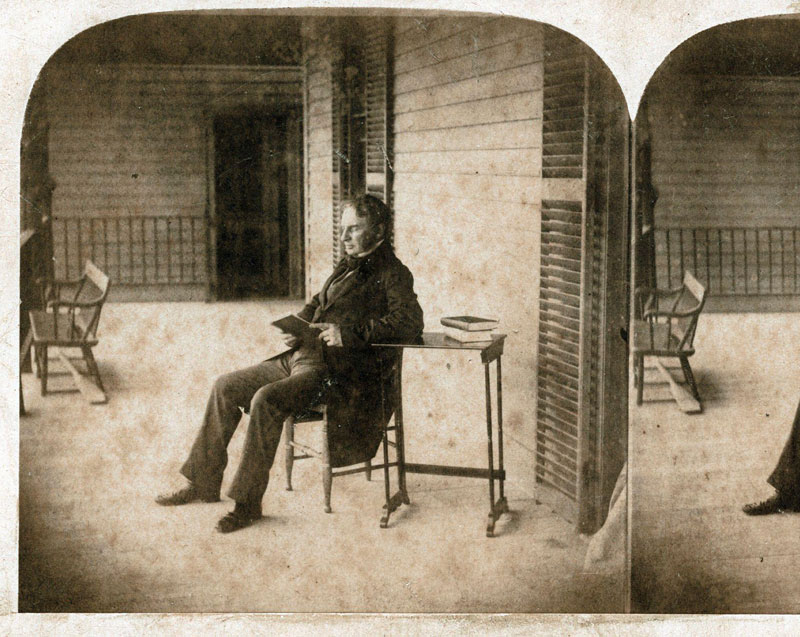Forum: Response
Toleration & Divine Forbearance
Do you think I have come to give peace on earth? No, I tell you, but rather division.
Do you not know that God's kindness is meant to lead you to repentance?
In regard to Matthew Franck's two origin stories, I find it surprising that on so consequential a matter as the toleration of false teaching (for that is what we are discussing with regard to religious liberty), the apostolic deposit has given so little guidance that the Church has come to learn its own true mind on the subject, "not without pain and struggle," through its experiences in contemplation on the meaning of the imago Dei; through patristic allusion to the necessity that faith not be coerced; through the biblical record wherein our fathers, though chained in prisons dark, were still in heart and conscience free; and through heroes who laid the foundation for our religious liberty by resisting compulsion.
The Church, if we are to acknowledge Locke's litany of abuse in A letter Concerning Toleration, not much relieved by Prof. Hitchcock's historical observations, has had a particularly difficult time both identifying and following what some now take for a truth for which it is ultimately responsible—even though it would appear that its right belief in this matter has been finally clarified only by political philosophy in the wake of the Enlightenment. In said clarification, the Ground and Pillar of Truth has, as Locke's Letter asserts, been seized up and taught that, against the errors of its unquiet past, the toleration that leads to religious freedom for all but a few intolerables is its true belief.
If the teaching of the Church on this matter is not so much a product of scriptural or apostolic teaching as it is an evolution of doctrine, that suggests there is more than a little truth in the first origin story, which Franck rejects as a myth: that what was not clear in the Church, and toward which it, lacking dispositive teaching, had to struggle, was clear to modern thinkers who therefore found themselves in a position to say that toleration was its true doctrine on the treatment of errors in religion, essentially because Jesus taught, like the Mohammed of popular myth, a religion of peace.
Apparent Similarity
The Scriptures, however, know nothing of the liberal virtue of religious toleration, nor of freedom of religion as a divinely instituted right. Instead, they speak of the forbearance and patience of God, which we in penitent acknowledgement of our own sins must also give to our neighbors, in fear that as hypocrites we might be condemned for refusing to grant others what he in his goodness has granted to us.
Here is my central assertion in this response: Any acceptable concept of "toleration" among Christians is to be placed securely in the context of a teleology in which the sufferance of error, when not responded to by the repentance and amendment for which it is granted, is met by condemnation and judgment. It is this belief, not development of a doctrine of religious toleration from a root in divine revelation, to which the tumultuous and generally illiberal history of the churches bears witness. The time given in which no action is taken in judgment must be regarded as a limited period of grace, and is never a "right."
Toleration as a political right has, unlike the patience and forbearance of God, which he in turn requires of his people, a fixed quality. It is a virtue requiring authority with the power to secure it, but it needs no God to originate it, and it leads toward no execution of judgment. Having no end in judgment, there is no requirement for movement toward amelioration of the offenses to be tolerated, only the indefinite extension of said toleration as a right.

Although the toleration professed by Enlightenment liberalism has an apparent similarity to holy forbearance because both contain an extension of time in which no action is taken to remove a cause of offense, religious toleration as found in the laws of liberal states is in fact another thing altogether, having both a different origin and a different end, despite the appearance of likeness in its practice. It is this temporary appearance of likeness between divine forbearance on the one hand and the right of religious toleration on the other that encourages the mistaken belief that they are the same thing, and that the origins of the right of toleration may be sought in the happier, more evolutionary regions of Christianity.
Critical Distinction
Christianity, however, is not tolerant in the secular sense. The distinction drawn here is of critical importance, and points to two very different and fundamentally opposed concepts of toleration. This is so even though the Christian concept is complicated by differing convictions among Christians, defensible from the New Testament, about how the will of God is to be carried out in human society.
One Christian may be perceived as tolerant because he believes he has no right to take judgment on religious error into his own hands, while another may be seen as intolerant because he believes the service of God requires participation in a judgment that has already begun here in the world (clearly the majority opinion in the Constantinian age). Where these polarities in Christian understanding agree, however—where Roger Williams and the Inquisition in fact combine against the liberal state—is in their shared belief that an end shall be made to error by the judgment of God in which his people participate.
In this case, toleration based on his patience is, in its beginning and end, something different from toleration established as a political right. In fact, the latter is opposed to the very notion of tolerance based on forbearance, for it permanently suspends an end by making toleration a fixed right of religious liberty, an endowment from the Creator. Such endowment has, however, no warrant in Scripture or the traditions of the church. In Christian terms, there are no divinely ordained and inalienable rights, only good gifts which come down from the Father of Lights, and which may be taken away at his pleasure, including life, liberty, and the pursuit of happiness. The distinction between right and gift is fundamental and pervading.
In the Letter Concerning Toleration, Locke, standing in judgment on the illiberality of the churches—citing one example after another of how they had fouled their own bed by various instances of intolerance, and thus failed in what he took to be their religion—told them that their business was religious toleration, and with that made something of an end on it:
He that pretends to be a successor of the apostles, and takes upon him the office of teaching, is obliged also to admonish his hearers of the duties of peace and goodwill towards all men, as well towards the erroneous as the orthodox, towards those that differ from them in faith and worship as well as towards those that agree with them therein. [Great Books ed., vol. 35, p. 7d]
I will not attempt to pursue an argument here about whether Christians might be justified in taking action against false doctrine (which, pace Locke's impression, is only to a certain degree muted by sequestration in their own communities) or about what form the intolerant action might take. But I will say that while he preaches like a Christian when he admonishes his hearers to (seek?) peace and goodwill towards all men, in the classic mode of heresy he creates a fundamental distortion by only giving part of the story, by not coming to terms with the God who is a man of war, who does not come to bring peace on earth but a sword, and who shall come in glory with his saints to execute judgment on the earth.
Locke misses the paradox that Christian doctrine recognizes the merciful and judicial character of God to be reflected in the narrative of divine forbearance with a telos in judgment. This doctrine he replaces with the requirement that Christians, according to what he tells them is their creed, grant to all but the disloyal and civilly disruptive a permanent license of religious toleration. In this, he will not permit the whole of the Christian narrative, insisting instead on the substitution of toleration made permanent and granted as a right instead of a grace that leads to repentance.
The Necessary End
"Toleration" in the Christian dialect must mean forbearance that comes to an end. There is, we may readily grant, an imperfect analogue to this in constitutional articles that grant freedoms by forcing toleration of error. By making a fixed right of religious toleration, however, the nation that does it takes into its bosom a host of vipers.
The vipers were drowsy in the early days of this republic because of a far more general and essentially Christian agreement among its citizens as to what was tolerable and what was not. But they are wide awake and biting in this generation. Freedom of religion as a constitutional right must logically, for example, allow Muslims to establish themselves in communities that believe according to the precepts of the Koran, which of necessity must become nurseries of sedition.
Constitutional freedoms, when limits are not agreed upon, as they increasingly are not, work together toward the unraveling of the national fabric. The liberal principle of toleration does not comport with a Christian principle of forbearance that must eventually say, as the Lockean state cannot, "Enough—this is now at an end."
This is not to say that I am not immensely grateful for life in a nation which has up to now at least tolerated Christians of my type, but I do find it necessary to explain reasons for believing that wherever Christ does not rule with a rod of iron, governments will of internal necessity fall by the very freedoms they grant, whether to the king, or the great men, or the people. •
Manhattan Byway
Clearly there is a connection between my response to Matthew Franck and the text of the Manhattan Declaration, whose argument for religious liberty he follows. I signed the document because I entirely agree with its basic message, and am a firm ally in the culture wars with those who produced it. I have, however, reservations about the theological underpinnings of its Third Article, Religious Liberty, which I wish could be
re-written.The problem is not with any of the resolutions contained in the article, to all of which I also hold, but with a fundamental deficiency in its apology: "The struggle for religious liberty across the centuries has been long and arduous, but it is not a novel idea or a recent development. The nature of religious liberty is grounded in the character of God himself," this grounding being expressed in the freedom from coercion of conscience in matters of religion as demonstrated in the life of the Church and as supported by the quotation from the Epistle to Diognetus that "compulsion is no attribute of God."
We may stipulate that God does not bind the conscience, that is, force people to believe what they do not, even in the recalcitrant chambers of hell (so far as what is left to them there can be denominated "conscience"). To the degree the article proceeds on that premise, I agree. I have difficulty, however, finding the right of religious liberty in the character of God himself.
First, as I indicated in my response to Franck, I wonder why this very important article of faith was not stated more clearly in Scripture, or why it was recognized in the history of the Church in such a way as showed the working of our way toward it (a journey only completed post-Enlightenment) to be long and arduous. This reminds me of the argumentation of those groups who hold that the church, for the most part, got something important wrong from nearly the beginning, and that they have now appeared in the latter days as unworthy receptors of the truth of the matter. Being of conservative temperament, I tend to doubt it.
Second, and more important, I wonder why this characteristically liberal-minded God was not known to the prophet Elijah or the Christ of the Apocalypse, both of whom, while, under God, letting those they killed believe what they would—not coercing their consciences—certainly did not grant them "religious liberty" of the sort the Declaration sees in the character of God. I therefore suspect there must a radical difference between "toleration" as practiced in the economy of God and as defined by the liberal state. It is this difference I briefly explored in the response to Franck.
Caesar's Principles
The problem with the wording of the Manhattan Declaration here is that by glossing over the illiberality of God, which is as much a part of his character as his forbearing liberality, it has become able to mix two different and conflicting (secular and religious) understandings of religious liberty in a way that makes them out to be the same thing, when in fact they only share an extension of time in which no action is taken against error.
The upshot of this is that, bearing in mind the division of the kingdoms of God and Caesar, Christians can only reasonably make their appeal to Caesar—which is what the Declaration is—not on God's principles, but on Caesar's. This, I think, is very possible and holds promise for the Church when defending itself in the public square, but the Manhattan Declaration does not do it. Christians cannot argue convincingly with either historical or theological accuracy that religious toleration is a principle of their own, but they can make a convincing case that by refusing Christians their right of toleration under the law, the government is acting against its own constitution and interests. This is the tack the Declaration should have taken.
—S. M. Hutchens
S. M. Hutchens is a senior editor and longtime writer for Touchstone.
subscription options
Order
Print/Online Subscription

Get six issues (one year) of Touchstone PLUS full online access including pdf downloads for only $39.95. That's only $3.34 per month!
Order
Online Only
Subscription

Get a one-year full-access subscription to the Touchstone online archives for only $19.95. That's only $1.66 per month!
bulk subscriptions
Order Touchstone subscriptions in bulk and save $10 per sub! Each subscription includes 6 issues of Touchstone plus full online access to touchstonemag.com—including archives, videos, and pdf downloads of recent issues for only $29.95 each! Great for churches or study groups.
Transactions will be processed on a secure server.
more on Religious Liberty from the online archives
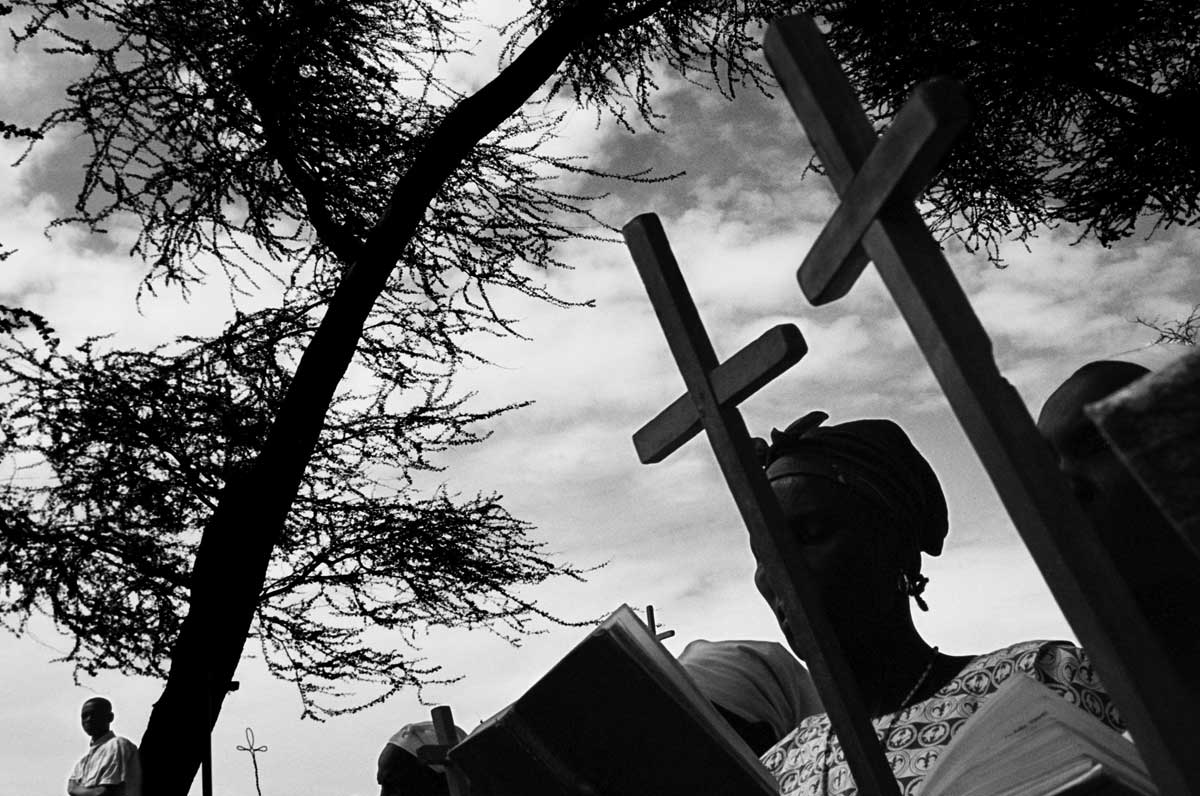
27.3—May/June 2014
Religious Freedom & Why It Matters
Working in the Spirit of John Leland by Robert P. George
more from the online archives

33.1—January/February 2020
Do You Know Your Child’s Doctor?
The Politicization of Pediatrics in America by Alexander F. C. Webster
calling all readers
Please Donate
"There are magazines worth reading but few worth saving . . . Touchstone is just such a magazine."
—Alice von Hildebrand
"Here we do not concede one square millimeter of territory to falsehood, folly, contemporary sentimentality, or fashion. We speak the truth, and let God be our judge. . . . Touchstone is the one committedly Christian conservative journal."
—Anthony Esolen, Touchstone senior editor





